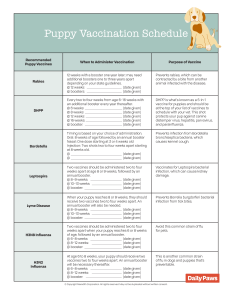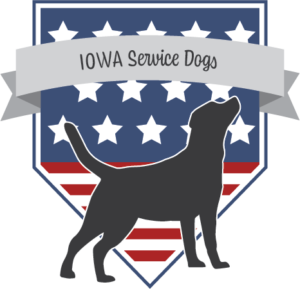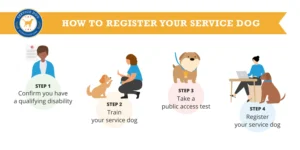Taking your dog to a boarding facility can be a big decision. You want to ensure your furry friend is safe and healthy. Let’s jump in deep: What Shots are Needed to Board a Dog?
Before boarding, certain vaccinations are essential. These shots protect your dog and other pets. Facilities often require proof of vaccination. Common vaccines include rabies, distemper, and Bordetella. Each protects against serious diseases. Knowing these requirements helps you prepare. It also ensures a smooth boarding experience for you and your pet.
In this post, we will explore the necessary shots for boarding dogs. We will discuss each vaccine, its importance, and when to get them. Understanding these vaccinations keeps your dog safe and happy during their stay. Let’s dive into what shots are needed to board a dog.
Table of Contents
Introduction To Dog Boarding Requirements
Dog boarding can be a great option for pet owners. It provides a safe place for dogs while owners are away. However, there are important requirements to consider. Vaccinations are a key part of these requirements. They help keep all dogs safe and healthy during their stay.
The Importance Of Vaccinations
Vaccinations protect dogs from serious diseases. Boarding facilities often require certain shots. Here are the most common vaccines needed:
| Vaccine | Purpose |
|---|---|
| Bordetella | Prevents kennel cough |
| DHP | Protects against distemper, hepatitis, and parvovirus |
| Rabies | Required by law in many areas |
| Leptospirosis | Protects against bacterial infection |
Check with the boarding facility. They may have specific vaccination requirements. Keeping your dog up to date on vaccinations is essential. It helps prevent the spread of diseases.
Preparing Your Dog For Boarding
Preparation can make boarding easier for your dog. Follow these steps:
- Schedule a vet visit. Ensure vaccinations are current.
- Familiarize your dog with the boarding facility. Visit before the stay.
- Pack your dog’s belongings. Include food, toys, and bedding.
- Keep a routine. Maintain feeding and walking schedules.
These steps help reduce stress for your dog. A well-prepared dog adjusts better to boarding. Happy boarding leads to a happier reunion.
Core Vaccinations For Boarding
Before boarding your dog, certain core vaccinations are necessary. These shots protect your dog and other pets. Boarding facilities often require proof of these vaccinations. Understanding these shots is important for your dog’s health.
Rabies Vaccine Essentials
The rabies vaccine is crucial for all dogs. Rabies is a deadly virus. It affects both animals and humans. Most states require proof of this vaccine for boarding. Here are key points about the rabies vaccine:
- First shot given at 12 weeks old.
- Booster shots required every 1 to 3 years.
- Protects against a fatal disease.
Make sure your dog is up to date on this vaccine. A current rabies certificate is usually needed for boarding.
Canine Distemper Vaccine Explained
The canine distemper vaccine protects against a serious disease. Distemper affects the respiratory, gastrointestinal, and nervous systems. Vaccination is vital for your dog’s health. Here’s what you need to know:
- First shot given at 6 to 8 weeks old.
- Series of shots until 16 weeks old.
- Booster shots needed every 1 to 3 years.
Many boarding facilities require proof of this vaccine. Keeping your dog vaccinated helps prevent outbreaks.
Non-core Vaccinations For Additional Protection
Non-core vaccinations help protect dogs from specific diseases. These shots are not required but are important in some situations. They can prevent illnesses that may spread in certain environments. Boarding facilities often recommend these vaccines for extra safety.
Bordetella Vaccine For Kennel Cough
The Bordetella vaccine protects against kennel cough. This is a highly contagious respiratory disease. It spreads easily in places like boarding kennels, dog parks, and grooming salons. Even healthy dogs can catch it.
- Symptoms include:
- Coughing
- Sneezing
- Nasal discharge
Getting this vaccine is wise if your dog will be around other dogs. It is typically given as a nasal spray or injection. Some facilities require it. Check their rules before boarding.
Canine Influenza Considerations
The Canine influenza vaccine protects against the flu virus in dogs. Canine influenza can lead to serious health problems. There are two main strains: H3N8 and H3N2. Both can spread quickly among dogs.
| Strain | Symptoms | Severity |
|---|---|---|
| H3N8 | Coughing, fever, lethargy | Moderate to severe |
| H3N2 | Similar to H3N8, plus nasal discharge | Moderate to severe |
Vaccination is recommended, especially for dogs in crowded settings. Talk to your vet about this vaccine. They can help decide if it’s right for your dog.
Vaccine Schedules And Timelines
Preparing your dog for boarding involves important vaccine schedules and timelines. These vaccines protect your dog from serious diseases. They also ensure a safe environment for all pets in the boarding facility.
Understanding Vaccine Timelines
Every dog needs specific vaccines at certain ages. Here’s a quick look at the essential vaccines:
| Vaccine | Age to Start | Booster Schedule |
|---|---|---|
| DHPP (Distemper, Hepatitis, Parvovirus, Parainfluenza) | 6-8 weeks | Every 3-4 weeks until 16 weeks |
| Rabies | 12-16 weeks | 1 year, then every 1-3 years |
| Bordetella (Kennel Cough) | 8 weeks | Every 6-12 months |
| Leptospirosis | 12 weeks | Every year |
These vaccines help protect dogs against common illnesses. Follow the schedule for your dog’s health. Ensure all shots are up to date before boarding.
Last-minute Vaccinations: Risks And Recommendations
Last-minute vaccinations can happen. However, they come with risks.
- Reaction Risk: New vaccines may cause side effects.
- Time Needed: Vaccines take time to build immunity.
- Boarding Policies: Facilities may require vaccines in advance.
Plan ahead. Schedule vaccinations well before boarding. This ensures your dog is protected and meets facility requirements. Always consult your veterinarian for the best timing.
Health Records And Proof Of Vaccination
Before boarding your dog, health records are crucial. They show that your pet is healthy. They also confirm your dog’s vaccinations. Many boarding facilities require proof of these records. This ensures safety for all pets.
What Documentation To Provide
To board your dog, provide the following documents:
- Rabies vaccination certificate: Required for all dogs over 3 months old.
- Distemper, Parvovirus, and Bordetella: Vaccination records needed.
- Health certificate: Must be signed by a veterinarian.
- Flea and tick treatment: Proof may be requested.
Digital Vs. Paper Records: What’s Accepted?
Many boarding facilities accept both digital and paper records. Check with your chosen facility first. Here’s a quick breakdown:
| Type of Record | Accepted Format |
|---|---|
| Vaccination Certificates | Digital or Paper |
| Health Certificates | Usually Paper |
| Flea and Tick Records | Digital or Paper |
Always confirm what type of record is best. Some places prefer paper copies. Others may accept images on your phone. Keep a backup just in case.
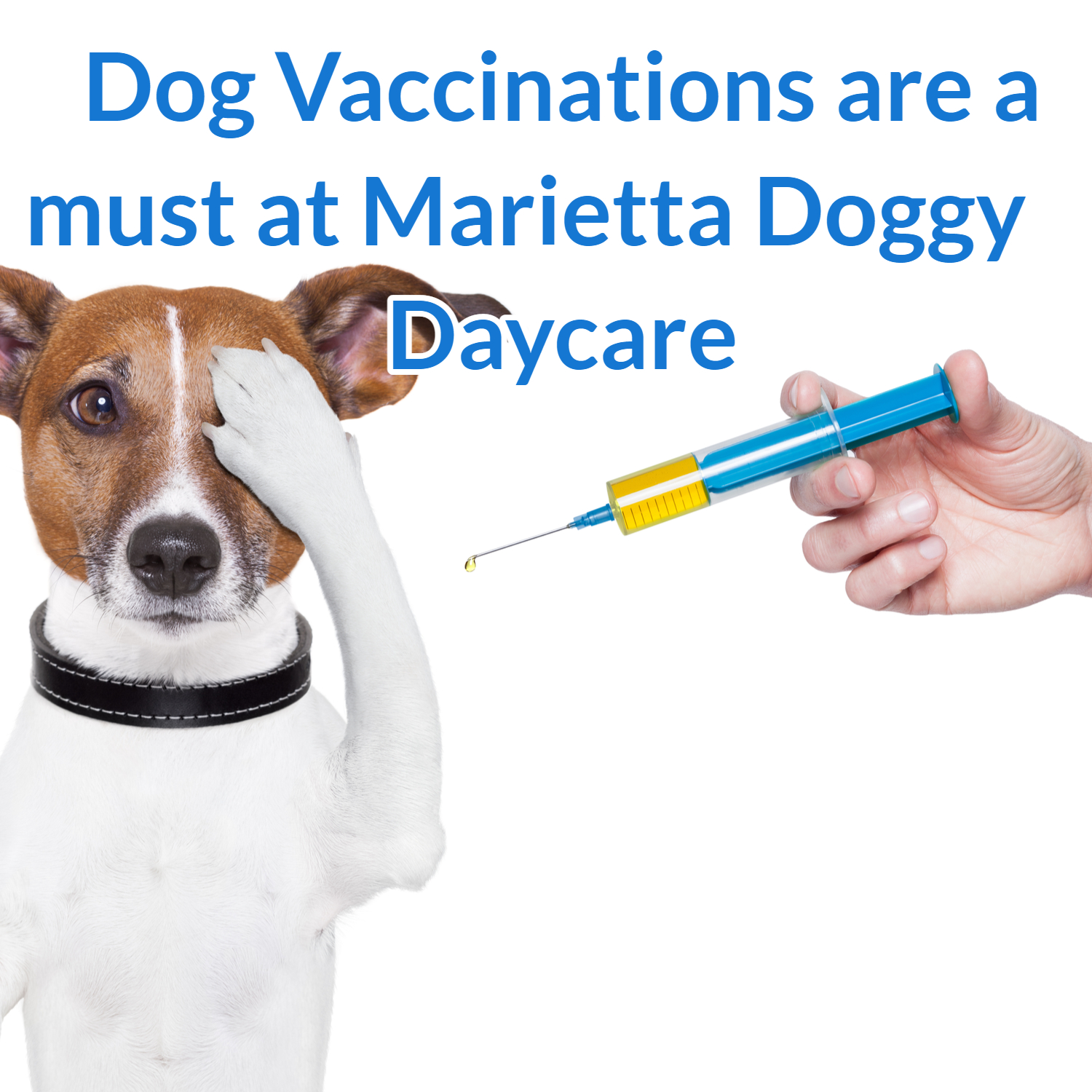
Credit: doggiedaycaremariettaga.com
Pre-boarding Health Checks
Before boarding your dog, health checks are essential. These checks ensure your pet is healthy and ready for their stay. They help prevent the spread of disease and keep all pets safe. Below are key points to consider.
The Role Of Wellness Exams
Wellness exams are crucial for your dog’s health. During these exams, a veterinarian checks for any health issues. They will:
- Examine your dog’s ears, eyes, and teeth
- Check their weight and overall condition
- Update necessary vaccinations
These exams help identify any underlying problems. Early detection can save your pet from serious health issues.
Managing Parasites Before Boarding
Parasite control is vital before boarding. Fleas, ticks, and worms can spread quickly among pets. Follow these steps to manage parasites:
- Consult your vet for a parasite prevention plan.
- Administer flea and tick treatments as recommended.
- Ensure your dog is up to date on deworming.
Many boarding facilities require proof of parasite prevention. Make sure to bring documentation with you. Keeping your dog free of parasites protects their health and the health of others.
Special Considerations For Puppies And Senior Dogs
Puppies and senior dogs need special attention before boarding. Their health needs differ. Vaccination requirements are often different. Understanding these differences ensures a safe stay for your dog.
Young Dogs: Additional Vaccine Requirements
Puppies require specific vaccines to protect them. Their immune systems are still developing. Here are the key vaccines for puppies:
| Vaccine | Recommended Age |
|---|---|
| DHPP (Distemper, Hepatitis, Parvovirus, Parainfluenza) | 6-8 weeks, 10-12 weeks, 14-16 weeks |
| Rabies | 12-16 weeks |
| Bordetella (Kennel Cough) | 8 weeks and older |
Puppies may also need a Canine Influenza vaccine. Check with your vet for recommendations. Boarding facilities often require proof of vaccination.
Elderly Dogs: Tailoring The Boarding Experience
Senior dogs have unique needs. Their health issues can vary widely. Consider these factors for a smooth boarding experience:
- Medical conditions: Inform the facility about any conditions.
- Dietary needs: Provide specific food instructions.
- Medication: List all medications and schedules.
- Comfort items: Bring familiar toys or bedding.
Choose a boarding facility experienced with senior dogs. Staff should understand their special requirements. This ensures your elderly dog feels safe and secure.
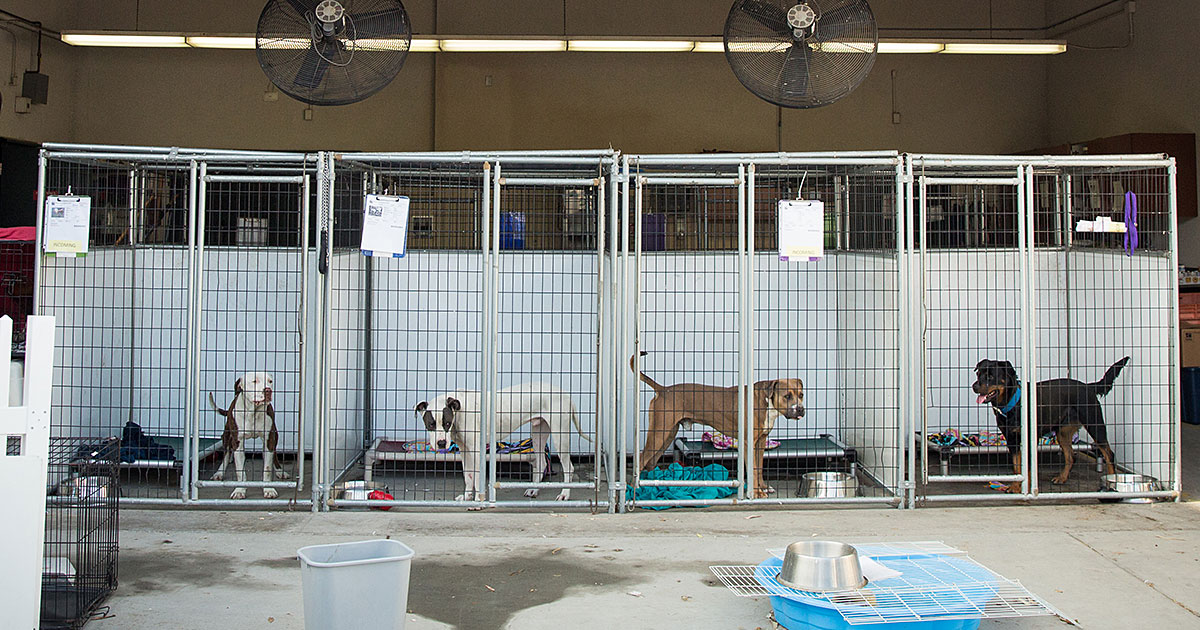
Credit: www.zoetispetcare.com
Choosing The Right Boarding Facility
Finding the right boarding facility for your dog is crucial. A good kennel ensures your pet’s safety and comfort. You need to check the facility’s policies and visit in person. This helps you make an informed choice.
Facility Vaccination Policies
Every boarding facility has specific vaccination requirements. These rules protect all dogs in their care. Make sure your dog meets these requirements. Here are common vaccinations needed:
| Vaccination | Description |
|---|---|
| Rabies | Protects against rabies virus. |
| DAP (Distemper, Adenovirus, Parvovirus) | Prevents serious viral infections. |
| Bordetella (Kennel Cough) | Prevents respiratory illness. |
| Leptospirosis | Protects against bacterial infection. |
Check with the facility about their specific vaccination requirements. Ensure your dog is up to date on all shots. This keeps them safe and healthy.
Visiting And Evaluating Potential Kennels
Visiting kennels helps you gauge their environment. Look for cleanliness and safety measures. Here are key points to evaluate:
- Check the overall cleanliness.
- Observe the staff interactions with dogs.
- Assess the size and condition of the kennels.
- Look for secure play areas.
- Ask about emergency procedures.
Take your time during the visit. Ask questions about daily routines. Observe how the dogs behave. A happy and healthy environment is essential for your pet.
Preparing Your Dog For The Boarding Experience
Boarding your dog can be stressful. Preparing your dog helps ease anxiety. Proper preparation ensures a smooth stay. Focus on behavioral training and packing essentials.
Behavioral Training For Stress Reduction
Training your dog before boarding is crucial. It helps them adjust better. Here are some tips:
- Basic Commands: Teach commands like sit, stay, and come.
- Socialization: Expose your dog to different people and pets.
- Short Separations: Practice leaving your dog alone for short times.
Use positive reinforcement. Reward good behavior with treats and praise. This builds confidence in your dog.
Packing Essentials For Your Dog’s Stay
Pack items that make your dog comfortable. Here’s a list of essentials:
| Item | Purpose |
|---|---|
| Food | Maintain diet consistency. |
| Water Bowl | Keep your dog hydrated. |
| Leash and Collar | For walks and safety. |
| Comfort Item | Provide familiarity and comfort. |
| Medications | Ensure health needs are met. |
Label all items with your dog’s name. This helps prevent mix-ups. Talk to the boarding facility about their rules. Some places may have specific requirements.
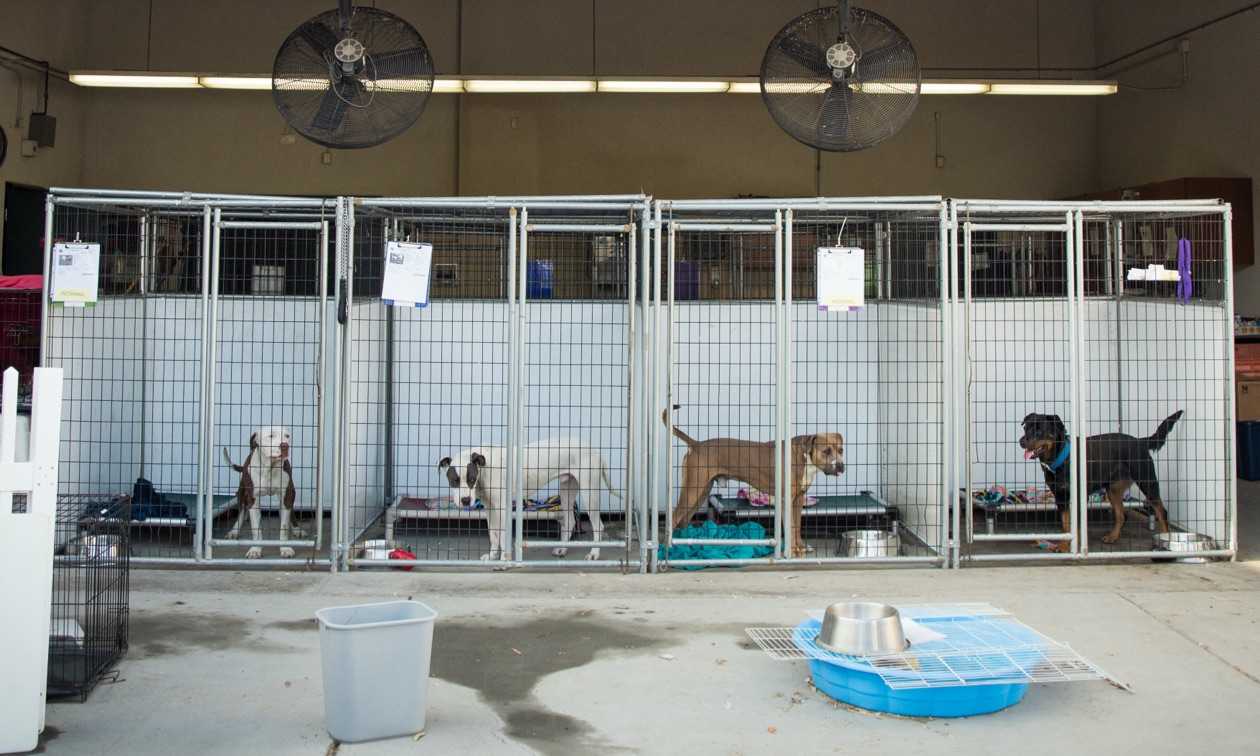
Credit: www.zoetispetcare.com
Faqs On Dog Boarding Vaccinations
Many pet owners have questions about dog boarding vaccinations. Understanding the required shots can help keep your dog healthy. This section answers the most common questions about vaccinations needed for boarding.
Commonly Asked Questions
- What vaccinations does my dog need to board?
- How often should my dog be vaccinated?
- Can my dog board without vaccinations?
- What if my dog is overdue for a vaccine?
Expert Answers And Advice
What vaccinations does my dog need to board? Most boarding facilities require these core vaccines:
| Vaccine | Purpose |
|---|---|
| Rabies | Protects against rabies virus. |
| DHPPC | Protects against distemper, hepatitis, parvovirus, and parainfluenza. |
| Bordetella | Prevents kennel cough. |
| Leptospirosis | Protects against bacteria that affect kidneys. |
How often should my dog be vaccinated? Puppies need vaccinations every few weeks until they are 16 weeks old. Adult dogs should get booster shots every 1 to 3 years, depending on the vaccine type.
Can my dog board without vaccinations? Most facilities will not allow unvaccinated dogs. This rule helps keep all dogs safe from diseases.
What if my dog is overdue for a vaccine? If your dog is overdue, get them vaccinated as soon as possible. Some facilities may allow boarding with proof of an upcoming vaccination appointment.
Frequently Asked Questions
What Vaccinations Are Needed For Boarding Dogs?
Most boarding facilities require dogs to be up-to-date on core vaccinations. These typically include rabies, distemper, and parvovirus. Some may also require Bordetella (kennel cough) and canine influenza vaccines. Always check with the boarding facility for their specific vaccination requirements.
How Far In Advance Should I Vaccinate My Dog?
It’s best to vaccinate your dog at least two weeks before boarding. This allows sufficient time for the vaccines to take effect. Consult your veterinarian to ensure your dog is up-to-date on all necessary vaccinations prior to boarding.
Do Puppies Need Vaccinations To Board?
Yes, puppies need certain vaccinations before boarding. Most facilities require puppies to have their first set of vaccinations. Typically, this includes distemper and parvovirus. Check with the boarding facility for their specific age and vaccination requirements for puppies.
Can I Board My Dog Without A Health Certificate?
Many boarding facilities require a health certificate for dogs. This document verifies your dog is healthy and up-to-date on vaccinations. It is essential for ensuring the safety and health of all animals in the facility.
Conclusion
Before boarding your dog, check their vaccination status. Required shots protect your pet and others. Core vaccines are essential for safety. Talk to your vet about any additional shots. Keep your dog’s health records handy. This helps with smooth check-ins at the boarding facility.
Planning ahead reduces stress for both you and your dog. A little preparation goes a long way. Ensure your furry friend is safe and happy while you are away. Your dog’s well-being is worth the effort.
